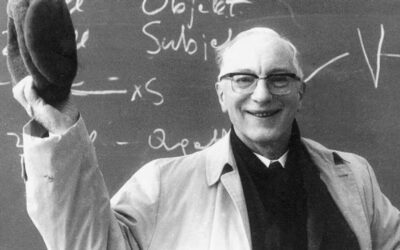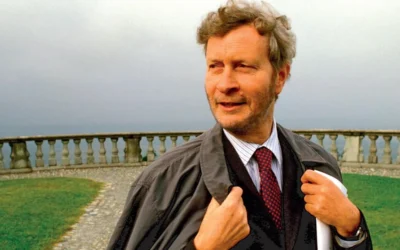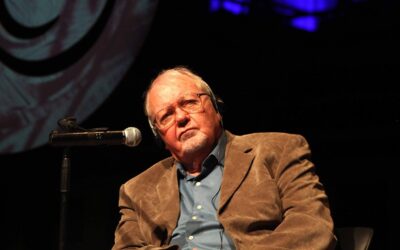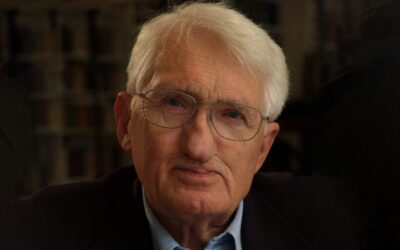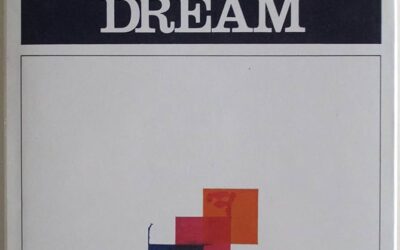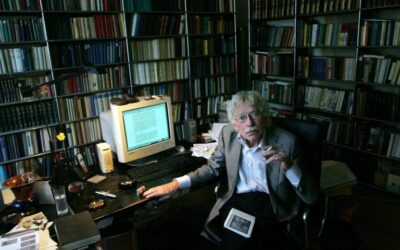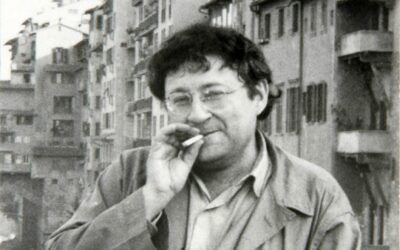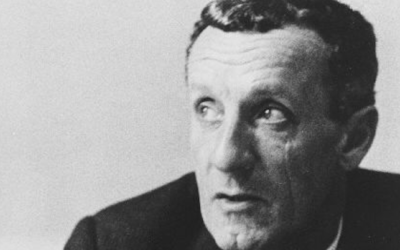"There is a very strong and very ancient emotion that is rarely mentioned or recognized: it is the anguish we feel for the absence of idols. If the eye has no image on which to rest, if there is nothing to mediate between the mental phantasm and that which simply is, then a subtle despondency creeps in. This is the atmosphere that reigns in the first dream of which we have a record, a dream told by a woman, Addudûri, overseer of the palace of Mari in Mesopotamia, in a letter etched on clay tablets more...
Metamodernism and Deconstruction: Post-Postmodern Approaches to Therapeutic Practice

Navigating Paradox, Authenticity, and Cultural Complexity in Birmingham Mental Health
Welcome to Taproot Therapy Collective’s exploration of how metamodern sensibilities and deconstructive approaches enhance contemporary therapeutic practice for individuals navigating cultural complexity, existential uncertainty, and the search for authentic meaning in a post-postmodern world. As Birmingham’s leading integrative therapy practice, we recognize that many clients struggle with the paradoxes of modern life, requiring therapeutic approaches that honor both/and rather than either/or thinking.
Understanding Metamodernism and Deconstruction in Therapeutic Context
Our Metamodernism and Deconstruction blog category examines how post-postmodern frameworks illuminate contemporary mental health challenges including cultural displacement, narrative fragmentation, authenticity struggles, and the oscillation between hope and despair that characterizes much contemporary experience. These philosophical approaches provide valuable tools for helping clients navigate complexity, embrace paradox, and construct meaningful narratives that honor both personal truth and cultural reality.
This approach builds on the comprehensive therapeutic philosophy outlined on our main services page, where we emphasize personalized care that recognizes each individual’s unique cultural position and narrative complexity rather than applying one-size-fits-all therapeutic models that may not account for contemporary cultural conditions and existential challenges.
Metamodern Sensibility and Mental Health
Oscillation and Paradox in Psychological Experience recognizes that mental health often involves navigating contradictory emotions, values, and experiences simultaneously rather than resolving them into simple categories. Metamodern therapeutic approaches honor the capacity to hold multiple perspectives, feel contradictory emotions, and live within productive tensions that generate growth rather than demanding resolution or consistency.
Research from contemporary cultural theorists like Timotheus Vermeulen and Robin van den Akker demonstrates how metamodern sensibility reflects authentic human experience more accurately than either modernist optimism or postmodernist irony alone, providing frameworks for therapeutic work that embraces complexity and ambiguity as natural aspects of psychological development.
Informed Naivety and Therapeutic Hope explores how clients can cultivate realistic optimism and authentic engagement despite awareness of life’s complexity and uncertainty. This approach helps individuals develop resilience and agency while maintaining critical awareness and emotional honesty about contemporary challenges including climate change, social inequality, and cultural fragmentation.
Sincere Irony and Authentic Self-Expression examines how individuals can express genuine emotions and values while maintaining awareness of social construction and cultural conditioning. This framework proves particularly valuable for young adults navigating identity formation in social media environments that blur authentic self-expression with performative identity construction.
Deconstructive Approaches to Limiting Beliefs and Narratives
Narrative Deconstruction and Reconstruction utilizes philosophical deconstruction methods to examine how personal stories, family narratives, and cultural myths shape psychological experience while creating space for alternative narratives that support growth and healing. This approach, similar to the archetypal work explored in our psychological storytelling analysis, helps clients understand how stories shape reality while developing agency in narrative construction.
Binary Dissolution and Complex Identity challenges either/or thinking patterns that often underlie anxiety, depression, and relationship conflicts by exploring how both/and approaches create more flexible and resilient psychological functioning. Deconstructive methods help clients move beyond rigid categories including good/bad, success/failure, and normal/abnormal that often contribute to psychological distress.
Cultural Critique and Personal Liberation examines how dominant cultural narratives around success, relationships, gender, sexuality, and purpose may contribute to individual psychological distress while supporting clients in developing authentic values and life directions that honor both personal truth and social responsibility.
Language and Reality Construction explores how therapeutic language shapes experience while developing awareness of how linguistic choices influence psychological states, relationship dynamics, and self-understanding. This meta-cognitive approach enhances therapeutic effectiveness while empowering clients to become more conscious creators of their lived experience.
Contemporary Cultural Analysis and Mental Health
Digital Age Identity and Authentic Selfhood addresses how social media, virtual relationships, and digital communication affect identity formation, self-esteem, and authentic connection. Metamodern approaches help clients navigate online/offline identity integration while maintaining genuine self-expression in digital environments that often reward performance over authenticity.
Consumer Culture and Existential Meaning examines how contemporary consumer capitalism affects mental health through commodification of experience, attention fragmentation, and meaning displacement while supporting clients in developing authentic values and purposes that resist commercial manipulation.
Climate Anxiety and Global Consciousness explores how awareness of environmental crisis, social inequality, and global challenges affects individual mental health while developing frameworks for engaged hope and meaningful action that address both personal wellbeing and collective responsibility.
Post-Truth Culture and Epistemic Resilience addresses how information overload, competing truth claims, and cultural polarization affect psychological functioning while developing skills for navigating uncertainty, evaluating sources, and maintaining mental health in complex information environments.
Birmingham Applications of Metamodern Therapeutic Approaches
Living in Birmingham, Alabama, creates unique opportunities for exploring metamodern themes including the oscillation between traditional Southern values and contemporary progressive ideals, the paradox of historical trauma and resilience, and the complexity of regional identity in global cultural contexts.
Birmingham’s civil rights history provides powerful examples of metamodern sensibility including the capacity to hold both critique of injustice and hope for transformation, realistic assessment of systemic problems alongside commitment to positive change, and the integration of anger and love that characterizes much social justice work.
The city’s cultural diversity including traditional Southern communities, urban professionals, international residents, and university populations creates environments where metamodern approaches to identity, belonging, and cultural navigation prove particularly valuable for therapeutic work.
Integration with Evidence-Based Practice
Metamodern and deconstructive approaches integrate effectively with contemporary therapeutic modalities detailed in our psychology and research section by providing philosophical frameworks that enhance rather than replace evidence-based interventions while addressing cultural and existential dimensions often overlooked in traditional therapeutic approaches.
Narrative therapy, acceptance and commitment therapy, and dialectical behavior therapy show particular compatibility with metamodern sensibilities through their emphasis on paradox tolerance, values clarification, and narrative flexibility that support both symptom reduction and existential growth.
Cognitive-behavioral approaches benefit from deconstructive analysis of thought patterns and cultural assumptions while somatic therapies gain depth through understanding how cultural conditioning affects embodied experience and authentic self-expression.
Research-Based Insights from Cultural Studies and Psychology
Contemporary research from University of California Berkeley, New York University, and Yale University explores how postmodern cultural conditions affect mental health, identity formation, and therapeutic effectiveness while informing approaches that address both individual symptoms and cultural factors contributing to psychological distress.
Studies on cultural psychology, narrative therapy, and existential approaches provide evidence-based support for therapeutic methods that address meaning-making, identity complexity, and cultural navigation while maintaining therapeutic effectiveness and symptom improvement.
Research on paradox tolerance, dialectical thinking, and cultural adaptation demonstrates how therapeutic approaches that embrace complexity and contradiction support psychological resilience and cultural competency while reducing psychological distress and improving life satisfaction.
Practical Applications in Therapeutic Work
Paradox Tolerance and Dialectical Thinking helps clients develop capacity for holding contradictory experiences, emotions, and perspectives simultaneously without requiring immediate resolution or consistency. This skill proves particularly valuable for anxiety reduction, relationship improvement, and decision-making in complex situations.
Authentic Value Clarification supports clients in distinguishing between inherited cultural values and personally chosen principles while developing authentic life directions that honor both individual truth and social responsibility. This work proves essential for young adults navigating identity formation and life direction choices.
Narrative Flexibility and Story Revision empowers clients to understand how personal stories shape experience while developing agency in narrative construction that supports growth, healing, and authentic self-expression. This approach integrates seamlessly with trauma therapy and identity work.
Cultural Code-Switching and Identity Integration helps clients navigate multiple cultural contexts while maintaining authentic selfhood across different environments including family, work, social, and intimate relationships that may require different aspects of identity expression.
Connect with Our Metamodern Therapy Community
For deeper exploration of post-postmodern approaches to mental health and cultural complexity, check out more on the Discover + Heal + Grow Taproot Therapy Collective blog and podcast where we regularly feature cultural theorists, philosophers, and therapists integrating contemporary cultural analysis with therapeutic practice.
Subscribe to our YouTube channel for discussions on culture, philosophy, and mental health intersections, listen to our podcast for interviews with cultural critics and metamodern practitioners, follow us on Instagram for daily insights on navigating cultural complexity and authentic living, connect on LinkedIn for professional resources on cultural competency and contemporary therapeutic approaches, find us on Google Maps for culturally informed and philosophically sophisticated therapy services, and join our Reddit community for discussions on culture, philosophy, authenticity, and therapeutic innovation.
Featured Article Categories
Our Metamodernism and Deconstruction blog includes Cultural Analysis and Mental Health exploring how contemporary culture affects psychological wellbeing, Narrative Deconstruction examining limiting stories and belief systems, Authenticity and Performance addressing genuine self-expression in complex cultural contexts, Paradox and Dialectical Thinking developing capacity for complexity and contradiction, Digital Age Identity exploring online/offline integration and authentic connection, Existential Meaning-Making addressing purpose and values in contemporary culture, Birmingham Cultural Navigation examining regional identity and cultural complexity, and Therapeutic Innovation integrating philosophical insights with evidence-based practice.
Specialized Metamodern Programs
We offer quarterly Cultural Complexity Workshops exploring contemporary challenges and therapeutic responses, monthly Authenticity and Identity Groups for individuals navigating cultural code-switching and authentic self-expression, specialized Narrative Reconstruction Therapy for clients seeking to revise limiting life stories, and Philosophy and Therapy Integration Sessions combining philosophical inquiry with psychological healing for comprehensive personal development.
Start Your Post-Postmodern Healing Journey Today
Navigating contemporary cultural complexity requires therapeutic approaches that honor paradox, embrace uncertainty, and support authentic meaning-making in a rapidly changing world. Our Birmingham-based team at Taproot Therapy Collective integrates metamodern sensibilities with evidence-based therapeutic practice to provide comprehensive care that addresses both psychological symptoms and cultural navigation challenges.
Contact Taproot Therapy Collective: 📍 2025 Shady Crest Dr. Suite 203, Hoover, AL 35216
📞 (205) 598-6471
🌐 www.GetTherapyBirmingham.com
🎧 Podcast: gettherapybirmingham.podbean.com
We provide culturally sophisticated therapy that honors the complexity of contemporary experience while supporting authentic self-expression and meaningful living in a post-postmodern world.
Discover + Heal + Grow with Taproot Therapy Collective – Birmingham’s center for culturally informed, philosophically sophisticated therapeutic practice that embraces the beautiful complexity of contemporary human experience.
The Changing Images of Man: SRI’s Vision of Human Transformation Through the Lens of Jung, Campbell, and the Metamodern Era
A Controversial Blueprint for Human Consciousness "The Changing Images of Man" emerged in 1974 from the Stanford Research Institute as one of the most provocative and influential documents in the history of futures research. This comprehensive report, later published as a book, represented an unprecedented attempt to map humanity's psychological and mythological evolution at a time of profound civilizational crisis. The document's creation involved a remarkable confluence of military industrial research,...
Understanding Our Political Moment Through Eric Voegelin:
A Guide for Immanentizing the Eschaton in Therapy Why a Dead German Philosopher Matters for Your Therapy Practice Picture this: You're sitting with a client who can't stop talking about how "the system is rigged," or maybe they're convinced that if only we could implement the perfect political solution, all our problems would disappear. Sound familiar? Whether it's QAnon believers, market fundamentalists convinced that pure capitalism will save us all, or activists certain that their ideology holds the key to...
Exploring the Depths of Jungian Psychology with Quique Autrey | PSYCHE Podcast Interview
In this captivating episode of the PSYCHE podcast, host Quique Autrey embarks on a deep dive into the world of Jungian psychology with guest Joel Blackstock. Together, they explore a wide range of topics, from the potential oversimplification of Jung's ideas by American Jungians to the neurological validation of Jung's phenomenological map of the soul. Joel's Journey: From CBT to Depth Psychology and Somatic Practices Joel shares his personal journey, starting with his early exposure to mythology and religion,...
Can Jungian Archetypes be Evidence-Based?
Examining the Science and Cultural Manifestations of Archetypal Psychology The concept of archetypes is a central pillar of Carl Jung's analytical psychology. Jung proposed that there are universal patterns or images that shape the human psyche and emerge symbolically across cultures and throughout history. He called these primordial images "archetypes" and believed they reside in the "collective unconscious," a layer of the psyche that is inherited rather than shaped by personal experience alone. But are Jungian...
Metamodernism: Exploring Multiple Perspectives and Conceptualizations
What is Metamodernism? The concept of metamodernism has emerged as a paradigm to describe the cultural, philosophical, and therapeutic landscape after postmodernism. While there is no single agreed-upon definition, metamodernism broadly refers to a structure of feeling and mode of discourse that oscillates between aspects of modernism and postmodernism. It seeks to reincorporate depth, affect, spirituality, and grand narratives after the deconstructions of the postmodern, while retaining postmodernism's insights...
The Limits of Behaviorism: Rediscovering the Soul in Psychotherapy
For much of the 20th century, the dominant paradigm in psychology was behaviorism, which focused on observable behavior and sought to understand the mind through the lens of stimulus-response conditioning. This approach gave rise to cognitive-behavioral therapy (CBT), which remains one of the most widely practiced forms of psychotherapy today. While CBT has proven effective for certain conditions, particularly anxiety disorders, it is fundamentally limited by its reliance on a narrow, mechanistic view of the...
A History of Psychotherapy and How it Got Here
Why Are There So Many Modalities of Psychotherapy? The history of psychotherapy is a tumultuous one, marked by heated debates, acrimonious splits, and competing claims to truth. From its origins in Freudian psychoanalysis to the present-day landscape of integrative approaches, the field has been shaped by a succession of theoretical and clinical revolutions, each building on and reacting against what came before. Freud and the Psychoanalytic Diaspora The first great schism in the history of psychotherapy occurred...
Theodore M. Porter and the Critique of Quantification:
Implications Theodore Porter's Thinking in Psychotherapy and Mental Health Who is Theodore Porter? In his seminal work "Trust in Numbers: The Pursuit of Objectivity in Science and Public Life," historian of science Theodore Porter offers a compelling analysis of the rise and cultural authority of quantitative methods in modern society. Porter challenges the prevailing assumption that the power and prestige of numbers derive solely from their success in the natural sciences. Instead, he argues that to fully...
Is Metamodern Meme Cultural Making us Speak Literally and Symbolically at the Same Time
The Metamodern Linguistic Turn What is Metamodernism? Metamodernism is an emerging cultural paradigm and sensibility that transcends the dichotomies of modernism and postmodernism. It seeks a synthesis of the universal aspirations and grand narratives of modernism with the relativism, irony and deconstruction of postmodernism. As we progress further into the 21st century, it becomes increasingly clear that the cultural frameworks of the past are no longer adequate for making sense of our rapidly shifting world....
The Metamodern Turn of Christopher Partridge: Spirituality, Depth Psychology and Healing Trauma in a Post-Postmodern World
Who is Christopher Partridge? Professor Christopher Partridge is a leading British religious studies scholar and social scientist whose work has profoundly influenced our understanding of alternative spirituality, popular culture, and contemporary religion. As Professor of Religious Studies at Lancaster University, his groundbreaking research in Western esotericism, new religious movements, and the intersection of religion with popular music has shaped academic discourse since the 1990s. His influential books,...
Weak Thought, Strong Therapy: Gianni Vattimo and the Metamodern Turn
Explore the relevance of metamodernism, spirituality, and depth psychology for understanding culture, trauma, and the practice of psychotherapy in the modern world. Discover insights from Carl Jung’s transcendent function and contemporary thinkers.
Fredric Jameson: The Metamodern for Therapy
Metamodernism, Post-Spirituality, and Depth Psychology: Navigating Trauma in the Contemporary Era In our increasingly complex and fragmented world, the need for frameworks to understand the psyche, culture, and the spiritual dimensions of human existence has never been greater. Two thinkers who offer profound insights into these realms are cultural theorist Fredric Jameson and depth psychologist Carl Jung. By tracing the evolution of culture through the stages of modernism, postmodernism, and metamodernism, and...
Metamodernism and the Future of Psychotherapy: Integrating Modernity, Postmodernity and the Therapeutic Encounter
Who are Timotheus Vermeulen and Robin van den Akker? In their seminal 2010 essay "Notes on Metamodernism", cultural theorists Timotheus Vermeulen and Robin van den Akker outlined an emerging cultural paradigm they dubbed "metamodernism". Oscillating between the opposing poles of modernist sincerity and postmodern irony, the metamodern sensibility attempts to transcend the aporia of the postmodern era without regressing to the naivete of the modern. This article will explore the implications of Vermeulen and van...
Metamodernism, Seth Abramson, and the Future of Psychotherapy
Who is Seth Abramson? As we navigate the complexities of the early 21st century, marked by rapid technological change, globalization, and a pervasive sense of existential uncertainty, the question of how to approach the healing of the human psyche has taken on a renewed urgency. In this context, the emerging philosophy of metamodernism, as articulated by thinkers like Seth Abramson, offers a compelling lens through which to re-envision the theory and practice of psychotherapy. Metamodernism, in essence,...
John D. Caputo and the Post-Secular Path to Healing Trauma
John D. Caputo’s post-secular philosophy offers a compelling framework for psychotherapists working with trauma in the modern age. By recovering the spiritual and existential dimensions of healing, Caputo charts a path beyond the impasses of modernity towards a more soulful, transformative approach to therapy.
Jürgen Habermas and the Transformation of Psychotherapy: Towards a Dialogical and Emancipatory Practice
Who is Jürgen Habermas? Jürgen Habermas (1929-) is one of the most influential philosophers and social theorists of the late 20th and early 21st centuries. As the leading figure of the "second generation" of the Frankfurt School, Habermas has made groundbreaking contributions to our understanding of communicative rationality, discourse ethics, democratic deliberation, and the public sphere. While not primarily a psychologist, Habermas's ideas have profound implications for depth psychology and contemporary...
Wilfred Bion: Dreaming, Science Fiction, and the Unthought Known
Who was Wilfred Bion? Wilfred Bion (1897-1979) was a highly influential British psychoanalyst known for his groundbreaking contributions to the understanding of thinking, groups, and psychosis. His dense, evocative theoretical works, often conveyed through poetic and paradoxical language, have had a profound impact on contemporary psychoanalytic theory and technique. Bion's innovative ideas about the nature of thoughts, the intersubjective field of analysis, and the importance of dreaming for mental life continue...
The Future of Therapy: Navigating the Tensions of Our Time
As a practicing therapist, I find myself constantly grappling with the widening gulf between the realities of clinical work and the priorities of the academic and research establishment in psychology. We are living through a time of profound cultural and epistemological transition, and the assumptions that have long undergirded the mental health field are showing serious cracks. If psychotherapy is to remain relevant and vital in the coming decades, we will need to radically re-envision both the form and content...
Friedrich Kittler: Theorist of Media and Technology
Friedrich Kittler: Digital Theory I. Who was Friedrich Kittler Friedrich Kittler (1943-2011) was a German literary scholar, media theorist, and cultural historian who made significant contributions to the fields of media studies, discourse analysis, and the history of technology. Kittler's work, which draws on a wide range of disciplines including literature, philosophy, psychoanalysis, and information theory, offers a provocative and influential perspective on the ways in which media technologies shape human...
The Revolutionary Life and Ideas of Guy Debord: Exploring the Situationist Critique of Modern Society
Guy Debord: Exploring the Situationist Critique of Modern Society I. Who was Guy Debord Guy Debord (1931-1994) was a French Marxist theorist, philosopher, filmmaker, and founding member of the Situationist International, a radical avant-garde movement that sought to transform everyday life through the fusion of art and politics. Debord's groundbreaking book "The Society of the Spectacle" (1967) presented a scathing critique of modern capitalist society, arguing that authentic social life had been replaced with...
Maurice Merleau-Ponty: Embodied Perception and Existential Phenomenology
Who was Maurice Merleau-Ponty? Maurice Merleau-Ponty (1908-1961) was a French philosopher and phenomenologist who made significant contributions to the fields of phenomenology, existentialism, and the philosophy of perception. His work bridged the gap between continental philosophy and the emerging fields of cognitive science and psychology, influencing subsequent thinkers in philosophy, psychology, and the social sciences. Merleau-Ponty's theories on embodied cognition, the lived body, and the primacy of...
Peter Sloterdijk: The Pioneering Metamodern Philosopher
Who is Peter Sloterdijk? 1.1 Peter Sloterdijk's multidisciplinary approach Peter Sloterdijk, a German philosopher, cultural theorist, and essayist, has emerged as one of the most influential and thought-provoking thinkers of the 21st century. His work spans a wide range of disciplines, including philosophy, psychology, anthropology, and political theory, making him a truly multidisciplinary thinker. Sloterdijk's unique approach to philosophy has earned him a reputation as a provocative and original thinker,...
Anticipating the Meta Modern: What Comes After The Post Modern?
Game of Spheres Key Points: 1. The metamodern era is characterized by an oscillation between modernist faith and postmodern doubt, driven by factors such as hyperindividualism, information overload, erosion of expertise, and a crisis of meaning. 2. Transformative gameplay, grounded in the post-secular sacred, offers a potential path for navigating the complexities of the metamodern age by engaging the whole person and promoting personal and social transformation. 3. The metamodern oscillation bears similarities...



